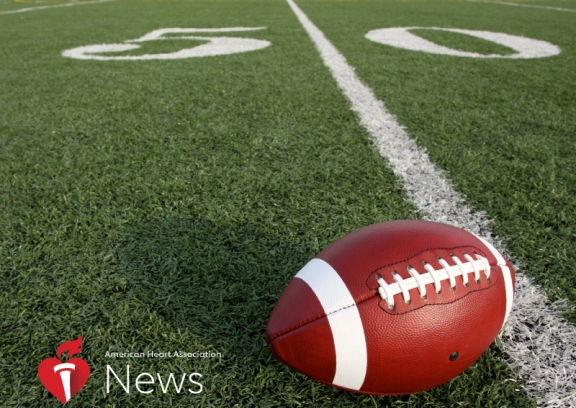
He's 58 and says his health is good, aside from some recent neck pain. But he's also had three strokes in five years.
Although he said he recovered with minimal problems after each one, after the third he was put in a hospital and finally wore that heart monitor his doctors had been suggesting. He learned he had atrial fibrillation – a type of irregular heartbeat that can lead to stroke. He was treated with a procedure known as cardiac ablation.
Tyrrell does not link his cardiovascular issues to his playing days. "How do you make that connection?" he says. "You don't know."
Researchers have some suspicions. And even while many people are worrying about what the game does to players' heads, a growing body of research suggests players should be paying at least as much attention to their hearts.
Recent studies suggest football veterans have higher risks of atrial fibrillation; enlarged hearts, or left ventricular hypertrophy, related to high blood pressure; and enlarged aortas, which can pose risk of an aneurysm.
"The focus in the media and even in the scientific press for the last decade has really been on neurocognitive health and concussion," said Dr. Aaron Baggish, director of Massachusetts General Hospital's Cardiovascular Performance Program. "And while that's an important issue, that's not what football players die from. They typically die from heart disease."
Earlier research had shown that overall, retired NFL players had a lower risk of dying from heart disease than the overall population. But a May study Baggish co-wrote compared pro football players to another group of elite athletes - Major League Baseball players.
"And the big story in that paper is that football players are at higher risk of heart disease than baseball players, and that is the most common reason they die," Baggish said. To be precise, the football players' death rate from heart disease was 2.4 times higher than for baseball players.
Football contributes a "perfect storm" of factors to heart disease, said Baggish, a director of the Football Players Health Study at Harvard University.
"Young football players are encouraged, if not forced, to gain weight," he said. "They are discouraged from doing any aerobic activity. When they gain weight and when they use a lot of non-steroidal anti-inflammatory drugs (for pain, swelling and injuries), their blood pressure goes up."
Baggish, who also is a team cardiologist for the New England Patriots, said science has only begun to tease out all the connections between football and heart health.
But, he said, it shouldn't be a surprise that "if you're young and you get very big, and or your blood pressure goes up very high, that that has undesirable consequences with respect to the heart and blood vessels. And both of those are very common problems among football athletes."
Genevieve Smith of Tulane University's Center for Sport in New Orleans was lead author of the enlarged heart study. It showed players in positions where bulk is celebrated, such as linemen, were at particular risk.
Being overweight is a problem for many former players, Smith said. One study she co-wrote noted that 64% of them were obese, which contributes to cardiovascular disease risk.
Blood pressure problems also are widespread.
"We see a lot of hypertension in our former player population, and then previous studies have also reported a pretty high prevalence of hypertension in current player population," she said. "Even all the way down to the high school level."







0 Comments